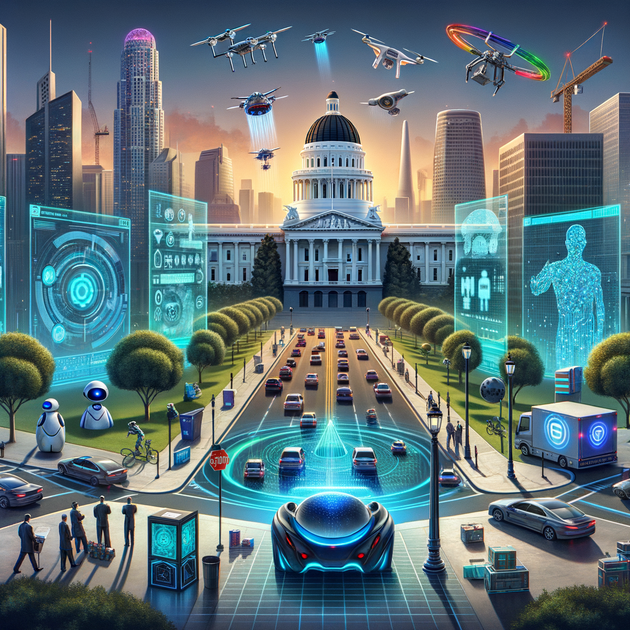Will California Lead the Way in AI Safety? Exploring Senate Bill 1047
Imagine a future where Artificial Intelligence (AI) is both a boon and a bane, where innovation thrives yet carries inherent risks. California stands at the crossroads of such a future with California Senate Bill 1047 (SB1047), a bill that could redefine the landscape of AI safety and governance. Let’s delve into the essential elements of this groundbreaking legislation, the debates it has stirred, and its potential impact on the tech industry.
What is California Senate Bill 1047?
Authored by State Senator Scott Wiener, California Senate Bill 1047 – officially known as the Safe and Secure Innovation for Frontier Artificial Intelligence Models Act – aims to regulate large-scale AI models within the state. This bill specifically targets “covered models,” which are AI models with training costs exceeding $100 million.
Core Provisions of SB1047
- Model Safety Testing: AI companies must rigorously test their models for safety before deployment.
- Full Shutdown Mechanism: A quick and decisive shutdown protocol for unsafe models is mandatory.
- Written Safety and Security Protocols: Developers are required to prepare comprehensive safety protocols for worst-case scenarios.
- Record Retention: Companies must maintain unredacted and unchanged copies of safety protocols for the duration of use plus five years.

Elon Musk, a vocal proponent of AI regulation, supports this bill.
Support and Resistance
Supporters of the bill, including tech magnate Elon Musk, argue that regulation is crucial to prevent potential risks associated with AI technology. “I’ve always been an advocate for AI regulation,” Musk stated, emphasizing the need for oversight similar to other high-risk technologies.
However, not everyone shares Musk’s enthusiasm. Critics contend that SB1047’s requirements may stifle innovation and burden companies with excessive regulatory scrutiny. These concerns are particularly poignant in Silicon Valley, home to many AI companies that drive U.S. tech advancements.
Defining “Covered Models” and “Critical Harm”
One of the central controversies surrounding SB1047 is its broad and somewhat vague definitions of “covered models” and “critical harm.” The bill stipulates that models costing over $100 million to train fall under regulation, but leaves room for interpretation regarding what constitutes “critical harm.” This ambiguity has raised fears of overregulation and unintended stifling of technological progress.
Compliance and Enforcement
If SB1047 becomes law, developers will have until January 1, 2026, to comply with its mandates, including:
- Annual Third-Party Audits: Independent audits to ensure compliance with safety standards.
- Unredacted Audit Reports: Companies must provide full audit reports upon request.
The bill also proposes the creation of the Board of Frontier Models, a body that would offer high-level guidance on AI policy, approve regulatory measures, and ensure ongoing oversight.
Role of the California Attorney General
The California Attorney General would wield considerable power under SB1047, with the authority to take action against developers whose models pose significant risks. This includes bringing civil actions and enforcing penalties for non-compliance.
Impact on the AI Industry
The passage of SB1047 could have profound implications for the AI industry, particularly in California. On one hand, enhanced safety measures might boost public trust in AI technologies. On the other hand, the stringent regulations could slow down innovation and allow international competitors to gain an advantage.
Global AI Leadership
As AI continues to evolve, the stakes grow higher. California’s decision on SB1047 will likely influence AI policy far beyond its borders. Whether the bill will set a global precedent for AI regulation or become a cautionary tale against overreach remains to be seen.
The Road Ahead
As we await the final vote on SB1047, one thing is clear: California has an opportunity to shape the future of AI governance fundamentally. The outcome of this legislative effort will undoubtedly have a ripple effect across the AI industry, influencing not just technological development but also ethical and safety standards worldwide.
What are your thoughts on AI regulation? Will SB1047 bring about meaningful change, or will it hinder innovation?
